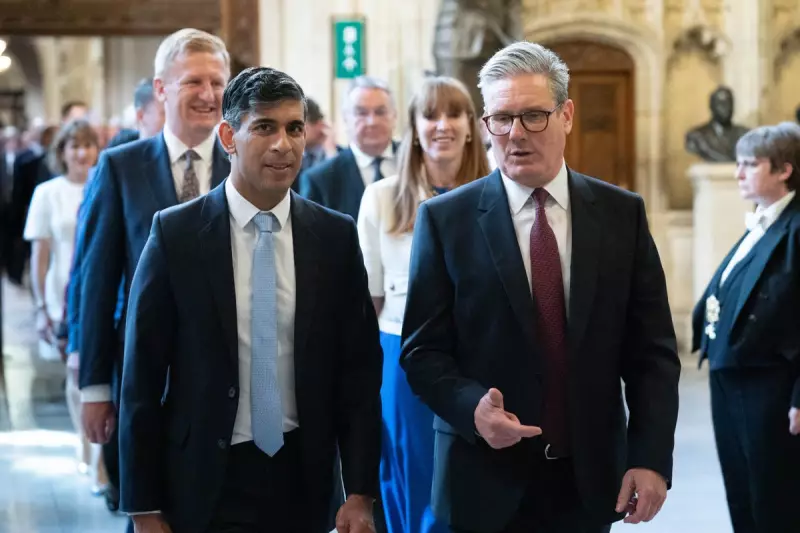
A gripping new Netflix drama, Hostage, has ignited political discussions after featuring fictionalised portrayals of UK political heavyweights Keir Starmer and Rishi Sunak. The series, led by acclaimed actress Suranne Jones, delves into tense hostage negotiations, blurring the lines between fiction and reality.
Political Figures in the Spotlight
The show's inclusion of characters resembling the current Prime Minister and Leader of the Opposition has raised eyebrows across Westminster. While the drama doesn't name them directly, the resemblances are unmistakable, with the characters engaging in high-stakes decision-making during a national crisis.
Suranne Jones Leads Stellar Cast
Suranne Jones, known for her powerful performances in Doctor Foster and Vigil, takes centre stage as a skilled hostage negotiator. Her character navigates complex political landscapes while trying to save lives, offering viewers a thrilling blend of personal drama and political intrigue.
Audience Reactions Mixed
Early reactions to the series have been divided:
- Some praise its bold approach to contemporary politics
- Others question the timing of such dramatisations
- Many applaud Jones' compelling performance
- Several note the show's timely exploration of leadership under pressure
The series arrives at a sensitive time in UK politics, with a general election looming and both major parties refining their public messaging. Some political commentators suggest the drama might influence public perceptions of real-world politicians, while others dismiss such concerns as overblown.
A New Trend in Political Storytelling?
Hostage represents the latest in a growing trend of entertainment blending current political realities with fictional narratives. Streaming platforms appear increasingly willing to tackle contemporary political themes, often with shorter production timelines than traditional broadcast television.
Whether this approach enhances political engagement or risks oversimplifying complex issues remains a topic of debate among media analysts and political observers.





